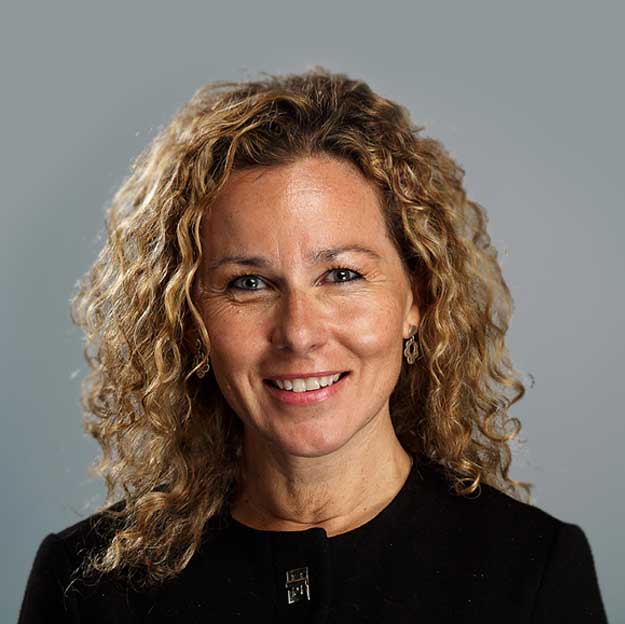Food Systems Podcast 53
In discussion with Mónica Andrés Enríquez
Monday, Oct 09, 2023
Mark Titterington is joined by Mónica Andrés Enríquez, Executive Vice President Europe, Yara, to discuss regenerative agriculture and how to develop and scale it in Europe and globally. This has been a core focus of the Forum over the past year and is a leading commitment within our Call to Action, culminating in the publication of our ‘Perceptions and Insights Report’.
Here is a summary of the conversation.
One question that came up consistently in our inquiry for the new report was: What does regenerative agriculture mean? To you, to Yara?
Yara sees it as one of the solutions to transform our food system and create a nature-positive future. That is our company’s ambition. Regenerative agriculture focuses on outcomes. It is about implementing the best sustainable farming practices that positively affect nature and climate.
For outcomes, we focus on five main areas – greenhouse gas emissions, biodiversity, soil, resource use and farmers’ livelihoods. Regenerative agriculture is broader and less prescriptive than other concepts. But we need collaboration, common metrics and an agreement on desired outcomes. I’d like to invite partners to join us on this journey because we must reach scale.
Measurement of the outcomes is key because the definition is quite loose. I guess you would support robust measurement?
I would support harmonization of measurement and also of the definition. We need to speak the same language, so we build trust along the value chain.
What do you see as the main benefits to farmers of regenerative agriculture?
Regenerative agriculture aims to mitigate emissions and improve crop resilience while enhancing soil fertility and preventing soil degradation. It also promotes efficient use of the resources necessary for crop growth without increasing pressure on land use or biodiversity. It brings prosperity to farmers.
For the benefit of all our listeners, what motivates Yara to be interested in this?
Yara’s traditional business is farmer-centric, responding to farmers’ needs. Our ambition is to grow a nature-positive food future, and this involves the whole value chain. We are also committed to climate neutrality. We can respond to farmers needs with advice on regenerative agriculture practices and also the new generation of green fertilizers to reduce carbon footprint. The new fertilizers are game-changers, and with that we can decarbonize the food chain.
What progress are we making towards developing and scaling agriculture? Thinking both about farmers, and also the level of collaboration between companies like yours, NGOs and policymakers to deliver systemic change?
We see three main challenges. First, the lack of short-term attractiveness for farmers. Second, risks related to transformation, where farmers feel alone. Third, the cost of the transition.
To make regenerative agriculture attractive to farmers, we need flexibility of approach. We need collaboration, not just by private companies but also the public sector. And solutions to incentivize partnerships.
In Europe, one tool is carbon agriculture policy – in our view, that should focus more on sustainable farming practices. We could also aim for something like the US Inflation Reduction Act, and for green procurement by the public sector.
What do you hear from farmers about the biggest obstacles they face?
The first is confidence. What they can do, what they will be measured for, how to apply these new practices, and the incentives. They need clear guidance, agronomic advice, and investment. And we have an opportunity in digital – farmers can benefit from digital tools being developed to help them take the right decisions.
If we look at financing the transition, and sustaining it, how can financial institutions be sure that sustainability pays and price the risk? How does the data farmers are capturing play into enabling financial institutions to make better decisions?
If there is more certainty than we have today, that would interest those providing finance. Sustainability is about reducing risk, reducing the impact of flooding or drought.
Let’s conclude with your specific commitment on regenerative agriculture. And where do you hope to be in 10 years’ time?
Regenerative agriculture has the potential to be one of the key farming models of the future. Yara wants to play a massive role in these changes, reducing the environmental footprint of farming while preserving biodiversity and soil health without endangering farmers’ economic viability. We will keep on being close to farmers.
If you have found this short summary interesting, there’s lots more to hear in the full 27-minute conversation. It is available now on iTunes, Podbean or Spotify or on this website.

Mónica Andrés Enríquez
Mónica Andrés Enríquez has served as EVP Europe since July 2021. She has previously held several positions...see more
Ms. Andrés Enríquez holds a master’s degree in Business Administration from Instituto de Empresa Spanish Business School and a degree in Agronomy Engineering from the Spanish Polytechnic University of Engineers (ETSIA).
.
